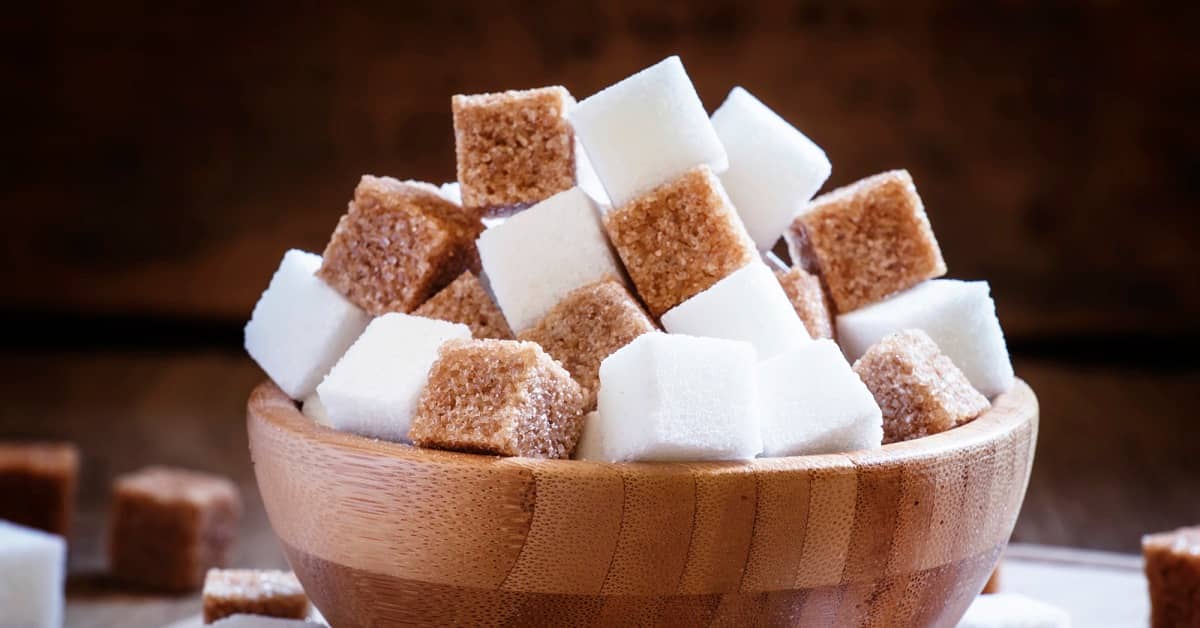
First, let’s get down to basics. There are two main perpetrators that accelerate the aging process of our skin: sun exposure, and advanced glycation end products (AGEs), which are byproducts of cooking or metabolizing food.
While we can’t block these two perpetrators completely, limiting sun exposure and being attentive to healthy eating can make a huge difference.
I won’t go into a lot of detail on sun exposure. I hope you know the drill on how much is safe for you (and it’s a very individual matter).
I will say I’m not a fan of sunscreens, the conventional answer to sun overexposure. In my view, smearing chemicals all over yourself – chemicals that haven’t been tested for long-term health effects – is a non-starter.
Use them, I guess, if you feel you MUST spend long periods in the sun with exposed skin.
My preferred solution is to limit my time in the sun to what my skin can tolerate, and then to wear protective clothing, including a hat on my head, or park myself under an umbrella when beside a pool, on a beach or on a boat.
Foods to Avoid
Now, let’s examine the foods that can harm your skin. Chances are you won’t be surprised at what claims the #1 spot on the list…Sugar.
You knew it was detrimental for your waistline, but did you know that sugar wreaks havoc on your skin, too? That’s because it increases the formation of AGEs, which damage collagen.
At the root of this problem is a natural process known as glycation. When we metabolize sugar, it attaches to proteins to form dangerous new molecules called AGEs. The more sugar in your diet, the more AGEs thrive.
Sadly, the proteins that are most susceptible to glycation are the very same ones responsible for keeping your complexion firm and youthful: collagen and elastin.
Complexion chaos ensures an increase in fine lines, wrinkles and sallow skin tone. In one study1 researchers found that sugar causes the cross-linking of collagen fibers, which makes them incapable of easy repair. When collagen breaks down, the door swings wide open for lined and wrinkled skin.
To add insult to injury, this sugar-induced glycation process can also exacerbate skin conditions like acne and rosacea.
Simply put, if you want to prevent wrinkles, reduce sugar intake. Sweet treats should be on the once-in-a-while list, not a regular diet staple.
Kick sugary drinks to the curb and make sure you check product labels for hidden sources of sugar. You’ll find it’s in practically all mainstream packaged goods, except the salty snacks (and sometimes it’s even in those).
Drink Moderately
Alcohol is the next villain. Sure, it’s fine to enjoy a glass of wine from time to time, but when it gets to be too much, your skin rebels. It stresses your liver, and you need a healthy liver to support healthy skin.“When your liver is functioning well, toxins that could potentially affect the skin are expelled naturally through your body,” said dermatologist Dr. Ariel Ostad2 in an interview. “But if toxins build up in your liver, and aren’t broken down properly, your skin can develop a variety of issues, like acne, sallowness, and wrinkles.”
On top of that, alcohol is dehydrating, and healthy skin demands adequate hydration. Think of your skin as a plant: when you water it correctly, the leaves will grow vibrant and beautiful.
Alcohol also disturbs normal sleep. In a Case Western University3 study, researchers found that poor sleep is associated with accelerated skin aging, wrinkles, uneven pigmentation and reduced skin elasticity.
How much drinking is too much? Medical authorities say moderate drinking is two glasses per day for a man, one for a woman (because of gender differences in body weight). I think drinking every day is too much.
This is a contentious matter, but my suggestion is no more than a couple of servings per week.
Processed Meats
Regular readers of this newsletter know I don’t think you have to be a vegetarian to be healthy. In my view, the weight of evidence is on the side of moderate meat eating.But I do try to steer clear of processed meats because they’re linked to a higher risk of several diseases. Processed meats include ham, hot dogs, sausages, salami, bologna and corned beef. They’re usually pinkish in color.
If you’re not sure a meat is processed, the label will leave you in no doubt when it contains a chemical feast. The strange-sounding compounds on the label are not present in fresh meat.
Many of these compounds are detrimental to health. The sulfites and other preservatives in processed meats like deli meat, sausage and bacon can trigger inflammation of the skin and accelerate the appearance of aging.
Additionally, these tasty culprits are high in salt, which can cause water retention, making the skin look puffy.
Like sugar and alcohol, it’s wise to keep processed meats to a minimum. Your skin, body and brain will thank you!
Dr. Howard Murad, founder of a popular skincare line, may have put it best when he said: “Healthy skin is a reflection of overall wellness.”
